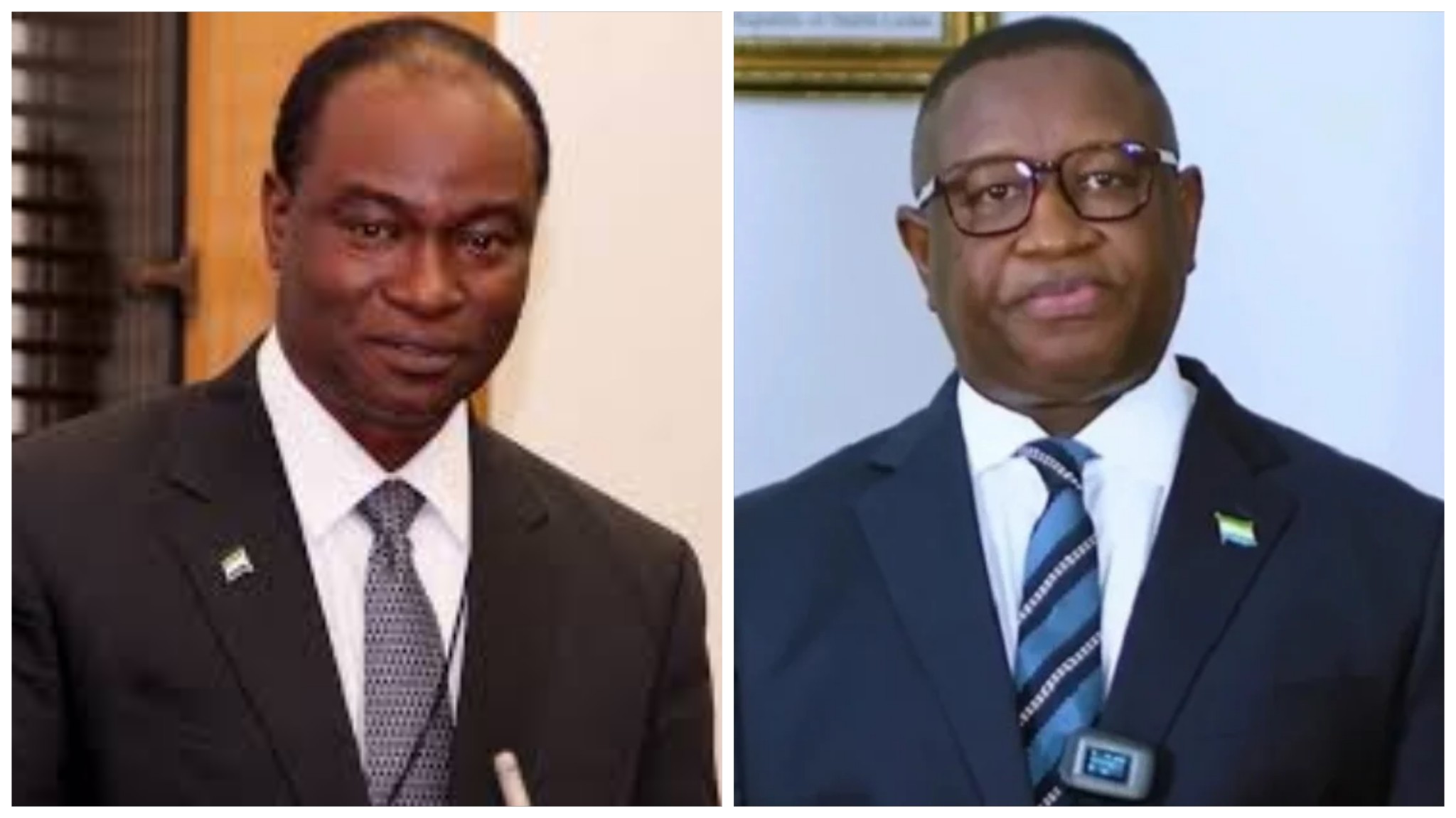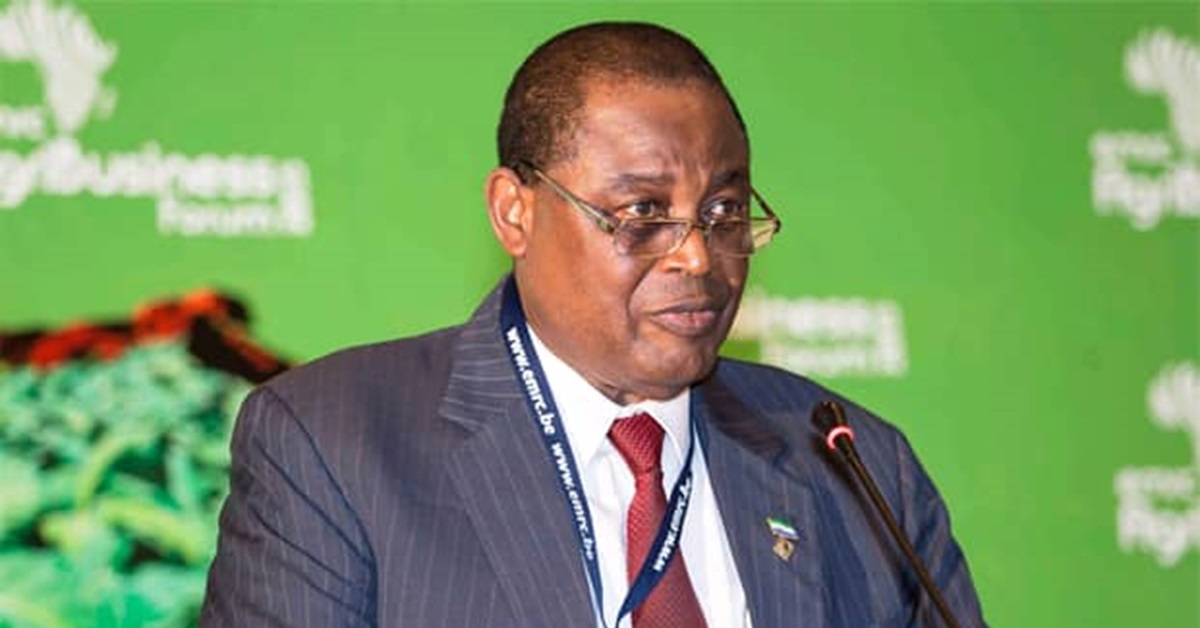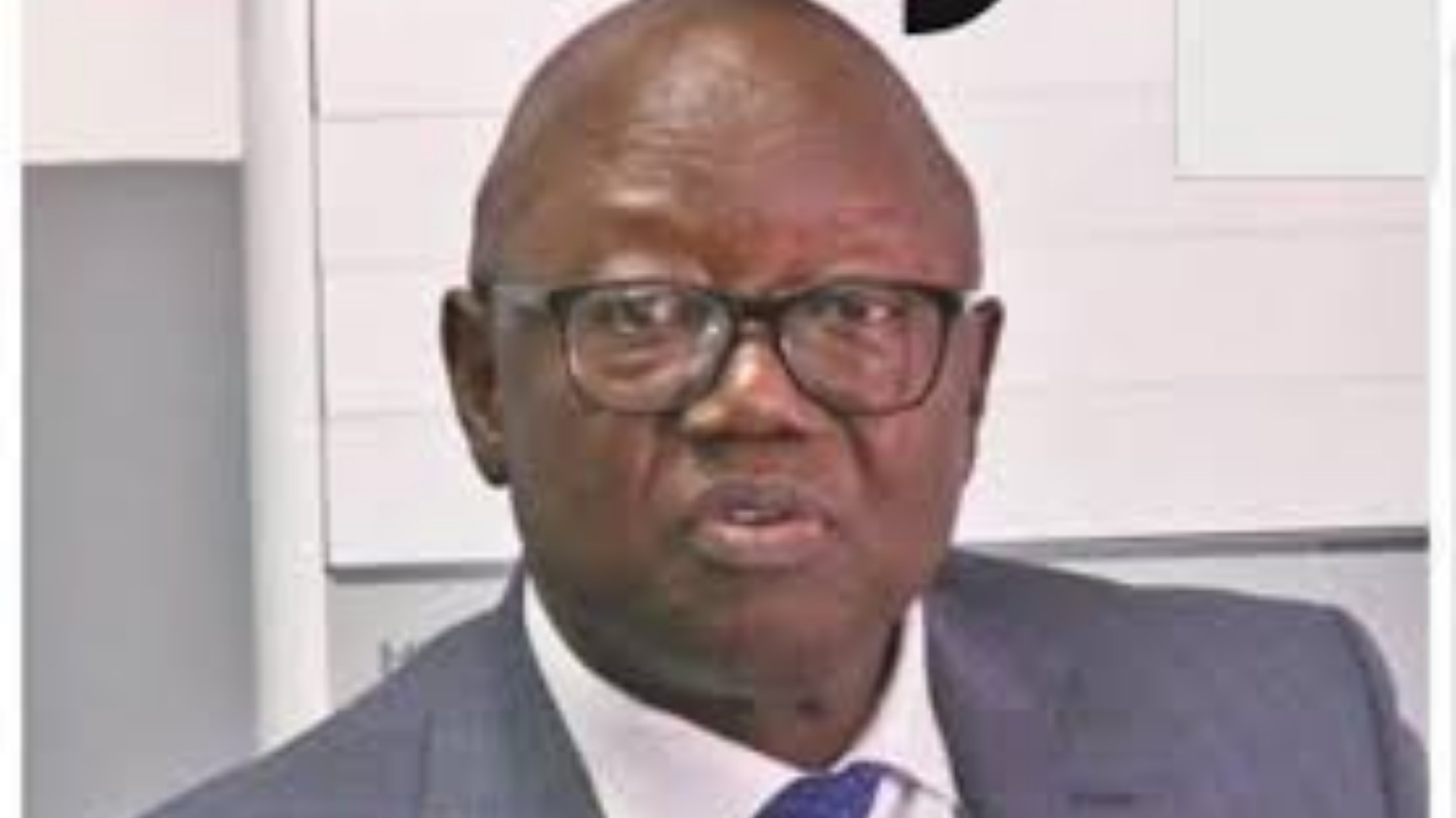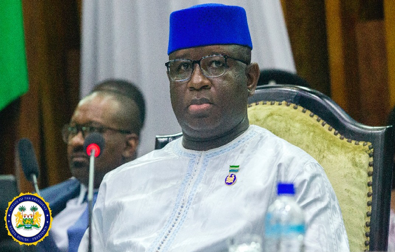
The latest Ibrahim Index on African Governance (IIAG) report published by the Mo Ibrahim Foundation yesterday, shows a decline in overall progress across the continent, for the first time since 2010. There has been a decline in security and the rule of law in some African countries such as Mali, Sierra Leone, and Guinea since 2010.
The 2020 Ibrahim Index on African Governance, identifies Mauritius, Cape Verde, Seychelles, Tunisia, and Botswana as the 2019 highest scoring countries. Angola and Somalia remain at the bottom but on a steady path of improvement.
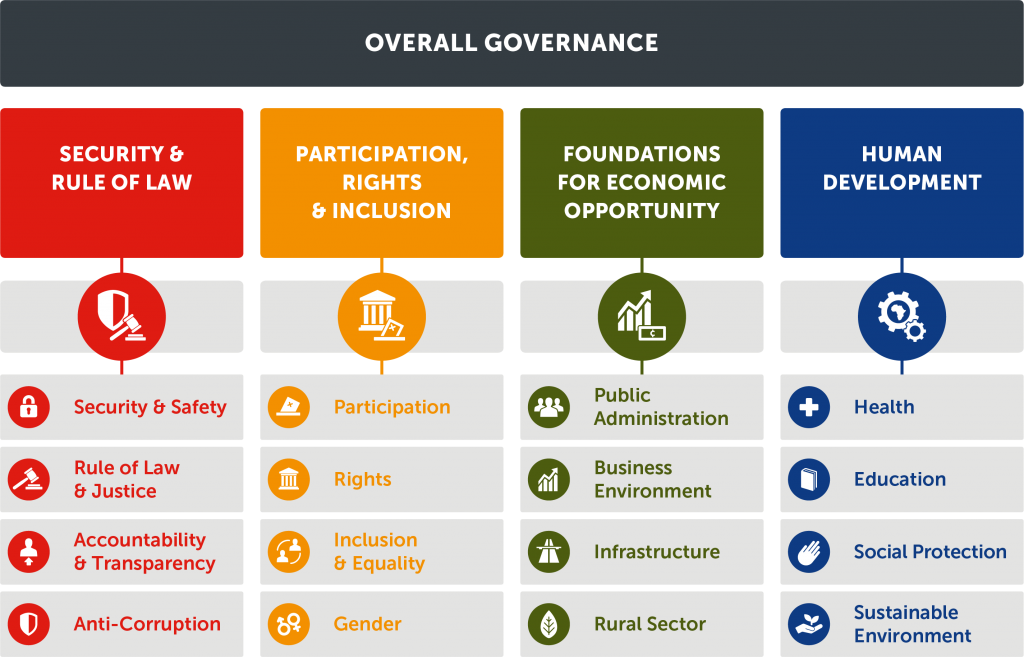
But the good news is that “Sixty percent of Africans live in countries where governance is better in 2019 than it was in 2010,” according to Nathalie Delapalme, Executive Director of the Mo Ibrahim Foundation (MIF). “However, since 2015, this progress has been slowing, which is a bit worrying,” Delapalme told reporters.
The IIAG measures and monitors governance performance in 54 African countries annually. The Index comprises four categories: Safety and the rule of law, participation and human rights, sustainable economic opportunity, and human development. In 2019, human development was the highest-scoring of the four categories of governance.
The Mo Ibrahim Foundation defines governance as providing the political, social, and economic public goods and services that every citizen has the right to expect from their state. Over the last decade, progress in delivering good governance has been mixed. In most of the 54 countries that took part in the study, citizens are less satisfied with their country’s governance performance than ten years ago. For most countries, the deterioration in public perception of overall governance has even worsened since 2015.
So, how has Sierra Leone performed, especially in comparison with its neighbours – Liberia and Guinea, and also The Gambia – a first class tourist destination?
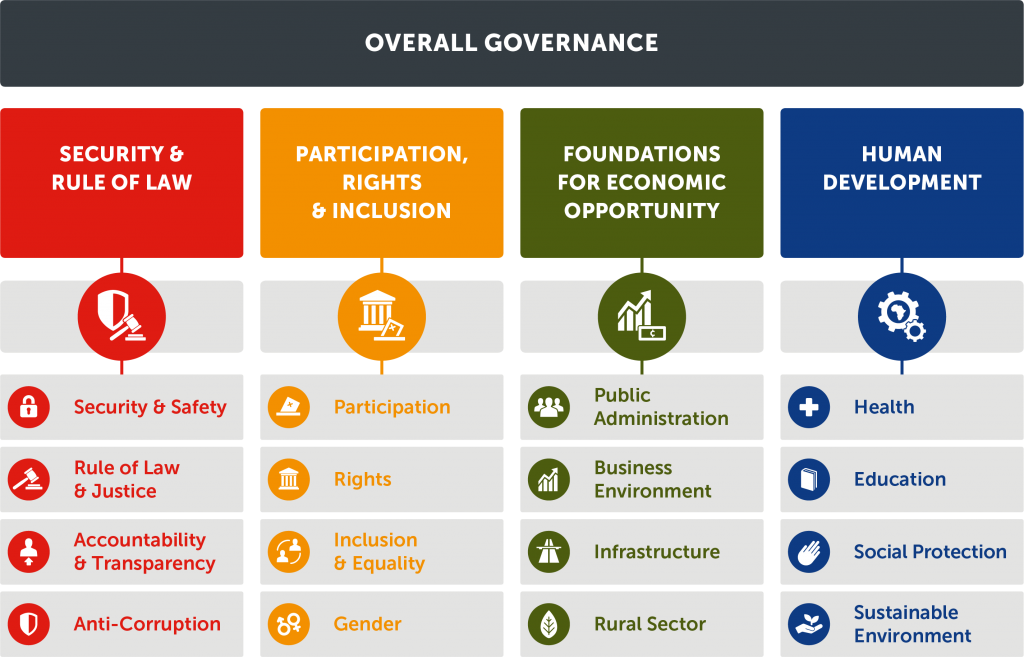
In terms of overall governance, Sierra Leone scored 51 out of 100, and ranked 24 out of the 54 countries studied. And there was 4.8 points increase in overall trend since 2010, with the following yearly governance scores – out of one hundred: 46.2 (2010) – 46.8 (2011) – 46.9 (2012) – 47.4 (2013) – 47.5 (2014) – 48.0 (2015) – 49.3 (2016) – 49.7 (2017 – 51.6 (2018) and 51.0 in 2019.
Looking at the country’s ranking out of the 54 countries, Sierra Leone has similarly made steady progress towards the middle order, starting with 30 (in 2010) – 28 (2011) – 31 (2012) – 29 (2013) – 29 (2014) – 29 (2015) – 25 (2016) – 26 (2017) – 24 (2018) – 24 (2019), with an overall change in ranking of +6 since 2010.
Sierra Leone and its neighbour Liberia share similar governance scores, except for the last two years when Sierra Leone fared slightly better, with Liberia Scoring: 46.7 (in 2010) – 46.7 (2011) – 47.1 (2012) – 46.8 (2013) – 48.8 (2014) – 50.1 (2015) – 49.7 (2016) – 50.5 (2017) – 49.2 (2018) – 47.9 (2019).
And similar picture could be seen in terms of governance ranking as Libera and Sierra Leone struggled in the middle order of the continent’s ranking, with Liberia ranking 27 (in 2010) – 29 (2011) – 27 (2012) – 31 (2013) – 25 (2014) – 24 (2015) – 24 (2016) – 24 (2017) – 27 (2018), and 27 in 2019. Whiles Liberia made zero overall change in governance ranking since 2010, Sierra Leone on the other hand made an overall progress of six points as could be seen above, especially in 2018 and 2019 respectively.
Whiles Sierra Leone has since 2010 managed to keep its yearly governance scores above 46 out of 100, neighbouring Guinea has lagged behind Sierra Leone with its 41.2 score in 2010 – 41.4 (2011) – 41.9 (2012) – 41.7 (2013) – 41.6 (2014) – 41.8 (2015) – 43.0 (2016) – 43.1 (2017) – 42.9 (2018), and 42.5 (2019).
Between 2010 and 2019, Guinea improved its overall governance score by 1.3 compared to Sierra Leone with 4.8 points increase in trend since 2010.
In terms of governance ranking out of 54 countries, Guinea continues to rank behind Sierra Leone in 37th position in 2010, 36 (2011) – 38 (2012) – 39 (2013) – 40 (2014) – 39 (2015) – 38 (2016) – 37 (2017) – 39 (2018) – 39 (2019).
Between 2010 and 2019, Guinea’s governance ranking fell by an overall 2 positions, compared to Sierra Leone’s overall improvement of 6 positions.
However, when compared with The Gambia, neither Sierra Leone, Guinea or Liberia has been able to match The Gambia’s governance performance since 2010, especially since 2017, with an overall increase in governance score of 9.2, compared to Sierra Leone’s 4.8 and Guinea’s 1.3.
In terms of yearly governance scores, The Gambia scored 46.7 in 2010, 46.4 (2011) – 47.0 (2012) – 46.3 (2013) – 45.0 (2014) – 44.6 (2015) – 44.9 (2016) – 55.3 (2017) – 57.4 (2018), and 55.9 in 2019.
Gambia governance ranking out of 54 countries has been very impressive, especially between 2017 and 2019, ranking 27 in 2010, 30 (2011) – 30 (2012) – 32 (2013) – 34 (2014) – 34 (2015) – 34 (2016) – 16 (2017) – 15 (2018) – 16 (2019), showing a massive 11 points improvement in its overall ranking since 2010.
Looking at Sierra Leone’s scores across key areas of governance performance, tells a rather mixed, though disappointing story.
In terms of Security and Rule of Law, Sierra Leone scored 56.2 out of 100; participation, rights and inclusion – 56.8 out of 100; foundations for economic opportunity – 45.3 out of 100; human development – the Bio-led government’s flagship programme – 45.6 out of 100; security and safety – 84.2 out of 100.
This shows a decline in overall human development trend of -0.8 since 2010, ranking Sierra Leone at 21 out of 54 countries.
In terms of “Absence of Violent Events in State-Based Conflict”, Sierra Leone performed very well, scoring 99 out of 100, ranking 26 out of 54.
In Rule of Law and Justice – Sierra Leone scored 47.1 out of 100 but showing a 7.1 improvement in ranking since 2010 – with a ranking of 23 out of 54 countries.
Accountability and Transparency – Sierra Leone scored 49.4 out of 100 and ranking 17 out of 54 countries.
Anti-Corruption – another of President Julius Maada Bio’s flagship policy drive, Sierra Leone scored 43.9 out of 100, improving by 5.6 since 2010, ranking 20 out of 54.
In terms of Participation, Rights and Inclusion, Sierra Leone scored 56.8 out of 100, ranking a good 13th position out of 54 countries, though there is a slight decrease in overall trend of -1.1 since 2010.
In Public Administration – Sierra Leone scored 59.6 out of 100, with a +8 improvement in overall trend since 2010, ranking a good 11 out of 54 countries.
But it is in the Business Environment which the president needs to work on, if he is to attract investors into the country, that the government has fared poorly with a score of 42.5 out of 100, though showing a slight improvement in overall trend of +0.2 since 2010, ranking 39 out of 54.
And the same could be seen in terms of the Foundations for Economic Opportunity, with a score of 45.3 out of 100, ranking 34 out of 54 countries. There is an improvement in trend of +5 since 2010.
On Infrastructure, Sierra Leone scored 31.2 out of 100, despite the former government priding itself in this policy area as its greatest success after almost eleven years in power. But there was an overall improvement in trend of +13.3 between 2010 and 2019, ranking 39 out of 54 countries.
In terms of Rural Sector development, Sierra Leone scored below average with 48.1 out of 100, and a declining overall trend of -1.4 since 2010, ranking 32 out of 50.
A closer look at the government’s HUMAN DEVELOPMENT score of 45.6 out of 100 shows an interesting picture, scoring 51.2 out of 100 for Health; Education – 51.0 out of 100; Social Protection – 36.8 out of 100; and Sustainable Environment – 43.4 out of 100.
So, what is the public’s perception of Sierra Leone’s overall governance performance?
The Public Perception of Overall Governance score is 56.7 out of 100, ranking 7 out of 38 countries that took part in this study – a fall of -2.1 in overall trend since 2010.
The Public Perception of Security and Rule of Law in Sierra Leone is scored at 66.1 out of 100; public perception of participation, rights and inclusion – 65.3 out of 100; public perception of economic opportunity foundations – 48 out of 100; and public perception of human development – 47.4 out of 100.
And it is the last two scores – the public’s perception of economic opportunity in the country, and the government’s flagship “human development” agenda that could become problematic for the government, who says it is spending 23% of its annual budget on education, especially its Free Quality Education programme for primary and secondary schools across the country.
Two years in office, and already there are serious criticisms of the Bio-led government’s handling of the economy as unemployment and poverty continue to rise, lack of transparency, the poor performance of school pupils at the recent West African Examinations Council (WASCE) exams, which showed only a fraction of pupils across the country have passed.
These criticisms are bound to continue into 2021 and beyond, if the government does not change its approach and ministerial leadership through a cabinet reshuffle, very soon. General and Presidential elections are due in 2023.
Credit: Sierra Leone Telegraph

